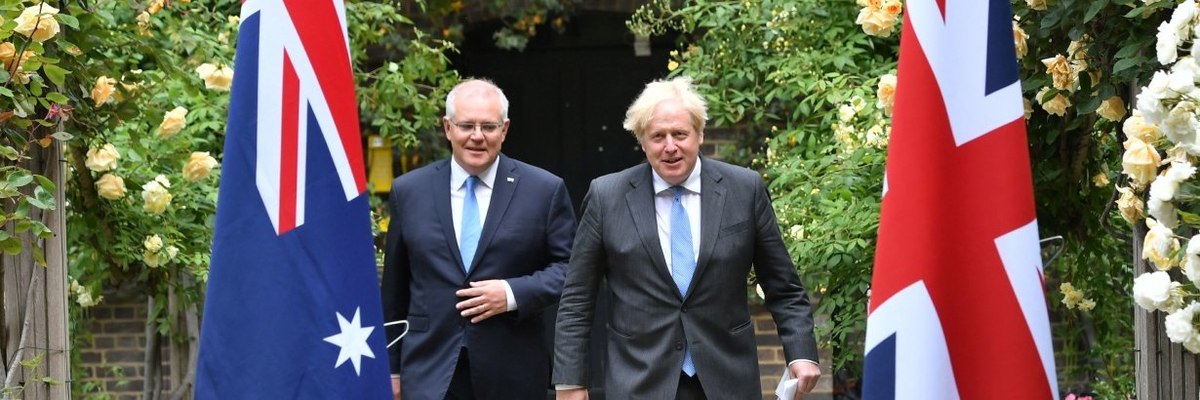The UK and Australia recently announced the broad outline of a trade deal. One of the main areas of contention was around food products, which spurred discussions around environmental and farming policies and practices. But what do the public think?
When asked what they think should be the main priority of the trade deal when it comes to food products, none of the options secure majority support. The most popular are protecting British farmers (42%) ensuring high animal welfare standards (41%) and high food quality (34%). Limiting environmental impact (19%) and low prices for UK consumers (16%) gain notably less support.
However, in certain areas there are pronounced differences among supporters of different parties. Half (50%) of Conservatives prioritise protecting British farmers compared to two in five Liberal Democrats (41%) and Labour voters (39%). By comparison, while a third (35%) of Liberal Democrats and three in ten (29%) Labour supporters believe limiting environmental impact should be prioritised, this view is shared by only one in ten (10%) Conservatives.
Food imports and Australian farming methods
As with the mooted US trade agreement, certain farming methods are in the spotlight. We asked the public whether, as part of the trade deal, it would be acceptable or not to allow food imports from Australia that were a result of various farming practices, many of which are not currently allowed in the UK.
Around three quarters believe it would be unacceptable to allow chemical washed chicken (76%), vegetables grown with certain pesticides (74%) and imports of beef from cows reared in feedlots (also 74%) to come to the UK. Only slightly fewer thinking that the UK should not allow in beef treated with hormones (73%), eggs from hens kept in battery cages (72%) and pork from pigs kept in sow stalls for at least some of its pregnancy as part of the deal. Fewer people (61%) thought it unacceptable to import beef treated with antibiotics.
Do Britons think UK policies and practices are better or worse than other markets’?
We also asked about how people thought UK compared to Australia, the US and the EU when it comes to animal welfare standards, production standards and environmental policies. In most cases, more people thought the other markets’ standards and policies were worse than the UKs than thought they were better. This was particularly pronounced when it came to the US, with at least 60% of Britons thinking American standards and policies were worse the than UK’s and only 5% or fewer thought they were better.
However, there are a couple of notable exceptions when it comes to environmental policies in Australia and the EU. An equal proportion (20%) believe Australian environmental policies are better than the UK’s as think they are worse. It is a similar situation when it comes to the European Union with 17% of Britons believing the EU’s environmental policies are better than the UK’s and 15% believing they are worse.











